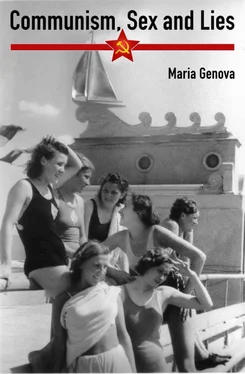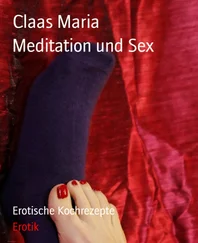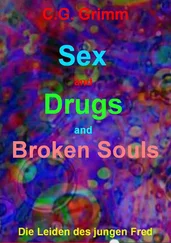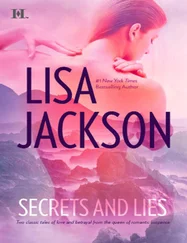In my eyes, the Netherlands was a country of dolls houses with neat gardens, in which the growth of the violets was observed by gnomes. The first time I went to school to learn Dutch, I couldn’t find the way back home, because all the streets with their terraced houses looked so much alike. There was nothing left for me to do to admit my defeat and call Frank to come to pick me up.
On the way back I saw a sign with ‘poor road surface’. I instantly thought of the enormous holes in the Bulgarian roads and slammed the brakes so hard that Frank was thrown forward. It turned out to be a barely perceptible bump. It surprised me that someone would have thought it necessary to place such a deceiving sign.
I also thought it was strange that I had to buy a ticket for the dunes. Walking in the countryside was free-of-charge in Bulgaria. You hardly had woods surrounding Amsterdam and if you wanted to go for a walk in the woods, you also had to pay for it! I missed Bulgaria’s mountains and the wilderness. Here everything was signposted with automobile association signs, wooden benches were placed all over the place and asphalt roads went through the dunes. There were no woods to be found without information signs, because just imagine you didn’t learn anything about nature! Every now and then I saw edible mushrooms but Frank wouldn’t let me pick them. I was only allowed to admire them from a distance. Dutch wildlife in a display case: you could look, but not touch. In Bulgaria, we considered nature to be an endless food factory: blueberries, chanterelle mushrooms, prunes, wild strawberries, hazelnuts: we always came home with bags full of food. Here I would sit down on a forestry bench with a sigh to look at the pretty mushrooms. I would have preferred to enjoy them with my mouth instead of my eyes, but being able to control your natural instincts was part of a successful integration.
Life behind the dykes still had some big surprises in store for me, like an indoor ski slope, not far from our house. People skied on a kind of rolling carpet. A little bit further up a former rubbish tip had been covered up with an industrial building. Inside you could ski on fake snow. That gave a more authentic feeling than a dry slope or a magic carpet. For kids that is, because the short slope made an adult feel like a midget.
I didn’t feel at home either in other places in the Netherlands. Like at the unemployment office, that wanted to keep me registered no matter what, even when I had embarked on a study. In Bulgaria I would have been written out straight away, but in the Netherlands this wasn’t possible. Here it wasn’t the people who made the rules, but the computers who refused to remove someone from the system. Luckily, I could put things in perspective by reading the newspapers. A resident of Heerlen had received 83 letters from a benefits agency. One on day, to be clear. My correspondence with the unemployment office paled into insignificance.
Of all the agencies, I feared the immigration police the most and especially the arrogant attitude of the officers who had to decide about my residency permit. The first time, Frank had brought all possible paperwork such as pay slips and mortgage papers to show that he could afford a foreign bride. If someone didn’t meet the income requirements, then his love was sent home with hesitation. That is why there were probably so many men showing off their Thai, Russian or Filipino women: not everyone could afford a foreign bride.
I was allowed to stay, but the officer warned Frank in my presence to watch out for East-European women who were after his money. I couldn’t believe that the officer said that, while I was there. As if I was some cheap prostitute. I was raging and secretly hoped that the officer would marry a Dutch woman who would leave him and make him pay alimony for years to come.
At parties and birthdays people always asked me what I thought of the Netherlands. I didn’t get the feeling anyone was really interested in my opinion. Everyone wanted to hear the standard story: that I enjoyed living in such a prosperous country. The Dutch were convinced from the outset that I must be happy to have escaped the poverty in Bulgaria. They presumed that everyone there was poor, even though they had never been there. One acquaintance claimed that you could get your driving license in the Eastern Bloc by driving around a banana tree a few times. My counter argument that there were no banana trees in Bulgaria he rejected as ‘weak’.
The eating habits at birthdays were new to me. In Bulgaria, no matter how rickety the table was it was always stowed with food and treats. In the Netherlands, the hostess would go around the group with a tray filled with small bites to eat. Nodding meant ‘yes’ here, in Bulgaria it meant ‘no’. Shaking my head to say ‘yes’ had become such a habit that at the start I was often passed over.
Despite such pitfalls my integration went well. At first I didn’t know what a diary was, but I finally bought one. And if someone wanted to make an appointment, I would flip through the pages in concentration looking for a space, just like the Dutch. I couldn’t find a good Bulgarian translation to explain to my parents what a diary was used for. In southern countries where chaos, intuition and spontaneity ruled, there was no use for a diary.
Everything in advance and planning things as much as possible, this lay in the nature of the Dutch people. Many people booked their summer holiday a year in advance. One year! You had to have superior brains to be able to look that far ahead. I was just happy being able to plan two months in advance.
The pinnacle of Dutch planning was a computer programme with Frank’s work shifts. It was an overview from 1990 to the year 3000. Steelworks Hoogovens apparently believed in the loyalty of its employees, till death do us part.
‘Oh, it’s always nice to be able to see from Heaven that you were actually supposed to be working on a certain day, but that you now have a day off,’ Frank replied. ‘And this is also a nice coincidence: the day I turn 50 I have a day off.’
Thanks to my light skin I wasn’t discriminated against that much, except on the labour market. All my job applications received a reply that they had chosen someone else. A car dealership told me that, despite my good credentials, I wasn’t suitable because I was a foreigner. What would his customers say if his secretary spoke with a foreign accent? I was a little bit angry for his reasons for turning me down, but on the other hand I appreciated his honesty. At least he said what the other employers thought, but didn’t dare to say out in the open.
At my wit’s end I applied for a position as a freelance employee for the North Holland Daily newspaper. Not that I believed I would be hired after one year in the Netherlands. But my covering letter impressed them. Later on, I heard it was not because of the content. ‘We all wanted to see which idiot had written their job application on pink paper,’ the editor-in-chief said.
Not knowing the rules of a country apparently had its advantages, because I was given the chance to prove myself. After a few test stories I was allowed to work for the newspaper. As the newcomer, I was of course given the stories no one else wanted to do. A report about an animal show, a story about an association of elderly ladies, a couple that had been married for 50 years, the annual harness racing and the jumble sale on Queen’s Day. I slowly started to see my opportunities grow. For interviews I often went to places that no regular person gets to see: from a prison to a chocolate factory and from receptions at ministries to the deck of a tanker navigating through the ports of Rotterdam.
Journalism accelerated my integration, but even though I tried as hard as I could, I still wasn’t accepted as ‘one of them’. Dutch people looked at me in surprise when I said my Dalmatian ate the same food as we did. ‘Doesn’t it make his breath stink? No? But surely it can’t be healthy.’ And I in turn was surprised that they bought all kinds of colourful dog and cat biscuits. Cats can’t recognize shapes and they are nearly colour-blind, but apparently, the pet food industry ignored this. As long as the pet owners believed that the colourful plant-based biscuits were better for an animal that was a natural carnivore. All that artificial food resulted in 40% of the dogs being overweight and they produced large stools that I had never seen before in Bulgaria.
Читать дальше












